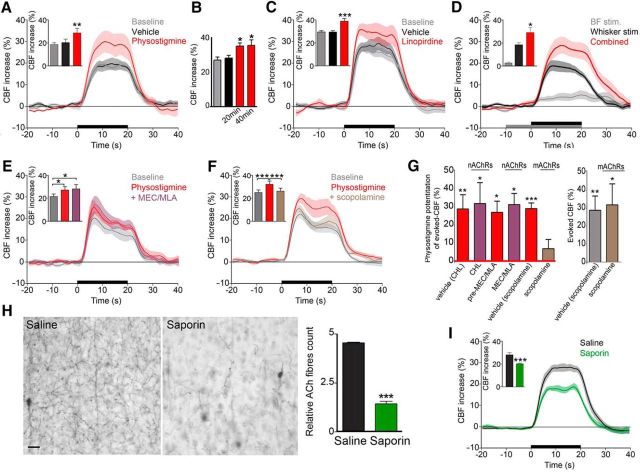Figure 2.
Altered ACh tone affects sensory-evoked CBF responses. Significant potentiation of the evoked CBF response to whisker stimulation (20 s, horizontal black bar) was observed consistently in conditions of increased ACh tone either pharmacologically with physostigmine (n = 5) (A), tested up to 40 min (n = 4) (B), linopirdine (n = 6) (C), or after subthreshold electrical BF stimulation (30 s, horizontal gray bar; n = 9) (D). The physostigmine-enhanced CBF-evoked response was not altered by nAChR antagonists administered either acutely (MEC/MLA, n = 6) (E) or chronically (CHL, n = 7 compared with vehicle, n = 5) (G). F, In contrast, the mAChR antagonist scopolamine reduced the facilitating effect of physostigmine on the whisker-evoked CBF response significantly (n = 7) (G) without affecting the CBF response to whisker stimulation alone (n = 5). G, Antagonist effects expressed as a percentage of potentiation induced by physostigmine after each drug administration. In contrast, reduced cortical ACh innervation with saporin was associated with a significant loss of ChAT-immunostained fibers in the barrel cortex (H) and a significantly smaller whisker-evoked CBF response (I) compared with control rats (n = 8 and 10, respectively). Scale bar, 20 μm. Shaded areas represent SEM. *p < 0.05; **p < 0.01 by repeated-measures ANOVA or unpaired t test.

